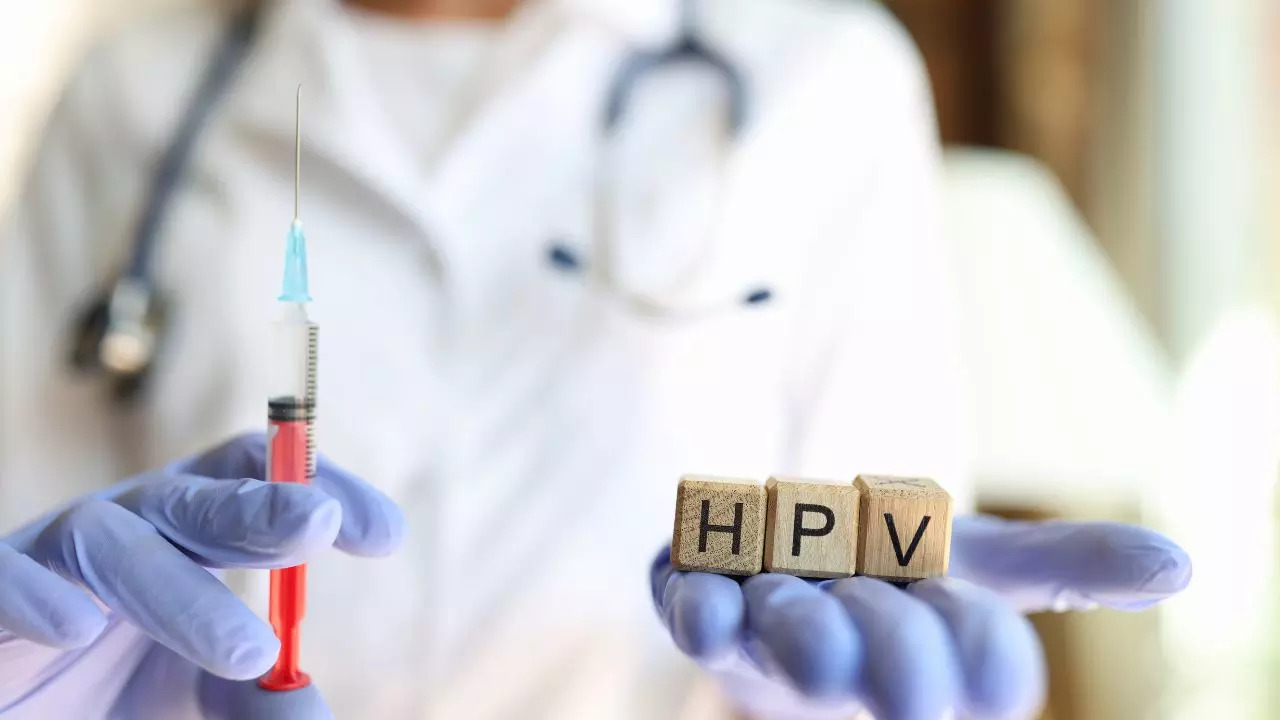High-risk HPV in men is linked to fertility problems
A new study has found that men who have the high-risk form of the virus that causes cervical cancer, or HPV, have higher amounts of dead sperm, which negatively affects their fertility. The study was published in the journal Frontiers in Cellular and Infection Microbiology and conducted by researchers in Argentina, including those at the National University of Córdoba.
HPV, also known as human papillomavirus, is a virus that is transmitted through sexual contact. HPV is known to cause cervical cancer, and most cases of cervical cancer are due to high-risk HPV. HPV is a common virus that affects nearly 80% of sexually active people at some point in their lives. In most cases, the immune system fights off the disease; however, in certain cases, the immune system is unable to get rid of the virus and the infection persists for a long time and eventually progresses to cancer. HPV not only causes cervical cancer, but can also cause cancer of the mouth, throat, head, and neck.
HPV has both high-risk and low-risk viruses. The study’s researchers explained that while the former is known to pose a high risk of developing malignant diseases, the latter is known to cause mostly benign warts or marks. For the study, the researchers analyzed the semen quality of 205 adult men.
The researchers found that about one-fifth of them, or 39, tested positive for HPV; 20 had the high-risk form of the virus, seven had the low-risk form, and 12 whom the team could not identify as high or low risk. The 39 HPV-positive men were compared with 43 HPV-negative men.
While the semen quality of the men in these groups did not differ, upon closer inspection, the researchers found that samples taken from the men infected with the high-risk virus contained significantly lower counts of immune cells known to help fight infection: CD45+ white blood cells.
Virginia Rivero, a professor at the National University of Córdoba and lead author of the study, said the lower immune cell counts observed in these samples were due to HPV’s known ability to evade an immune response. The researchers said this would cause fewer white blood cells to travel to the site of the HPV infection, which would affect their ability to clear the infection.
The researchers also found evidence that sperm from men infected with the high-risk version of HPV may be subject to repeated damage due to oxidative stress, as judged by elevated production of reactive oxygen species (ROS) in these men. While low levels of ROS are a product of normal sperm function, elevated levels can lead to breakdown of the outer covering of cells, breaks in genetic material, and cell death.
Consistent with this, the researchers found a higher number of dead sperm in HPV-positive men who had the high-risk virus. The authors said that “…individuals infected with HR-HPV showed a higher frequency of ROS+ dead sperm relative to those infected with LR-HPV genotypes.”
Rivero said: “We concluded that men infected with high-risk HPV, but not men infected with low-risk HPV, show increased sperm death due to oxidative stress and a weakened local immune response in the urogenital tract.”
The results suggested that men infected with the high-risk form of the virus may have impaired fertility, Rivero said.
(With contributions from PTI)
Disclaimer:
The information contained in this post is for general information purposes only. We make no representations or warranties of any kind, express or implied, about the completeness, accuracy, reliability, suitability or availability with respect to the website or the information, products, services, or related graphics contained on the post for any purpose.
We respect the intellectual property rights of content creators. If you are the owner of any material featured on our website and have concerns about its use, please contact us. We are committed to addressing any copyright issues promptly and will remove any material within 2 days of receiving a request from the rightful owner.

